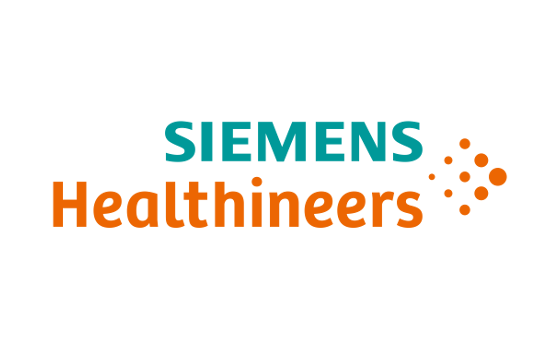 Siemens Healthineers presents functionalities powered by Artificial Intelligence (AI) that accelerate and improve Magnetic Resonance Imaging (MRI). The quality of MR imaging is defined by the trade-off between scan time, resolution and image noise. Improving one of these pillars usually requires compromising on one of the others. Deep Resolve, a deep learning solution for image reconstruction, can eliminate this dilemma. It enables clinicians to choose a significantly faster scan time while reducing noise and keeping the same resolution or even increasing image quality. Deep Resolve does not merely improve the final diagnostic image but starts at an even earlier stage: It works with the scanner's raw data to use AI algorithms to improve the image from the first steps of image reconstruction.
Siemens Healthineers presents functionalities powered by Artificial Intelligence (AI) that accelerate and improve Magnetic Resonance Imaging (MRI). The quality of MR imaging is defined by the trade-off between scan time, resolution and image noise. Improving one of these pillars usually requires compromising on one of the others. Deep Resolve, a deep learning solution for image reconstruction, can eliminate this dilemma. It enables clinicians to choose a significantly faster scan time while reducing noise and keeping the same resolution or even increasing image quality. Deep Resolve does not merely improve the final diagnostic image but starts at an even earlier stage: It works with the scanner's raw data to use AI algorithms to improve the image from the first steps of image reconstruction.
Speeding up scan time is especially valuable for patients who feel uncomfortable in MRI scanners, which is often the case for children, for example. Deep Resolve has great potential to shorten scan times by hooking into the very first step of image creation with all the available raw data. The Deep Resolve algorithms can therefore speed up scan times for brain MRI by up to 70 percent while doubling the resolution.(1) Adding Siemens Healthineers' unique Simultaneous Multi-Slice (SMS) technology can accelerate scan time further, by up to 80 percent.(1)
"We enable our customers to use their scanners in ways we have not seen before," says Arthur Kaindl, Head of Magnetic Resonance at Siemens Healthineers. "Knee imaging in MRI usually takes about ten minutes on a 3 Tesla system.(1) Using Deep Resolve algorithms, we got that time down to under two minutes - with the same image quality and diagnostic value."
Dr. Saif Afat, MD from University Clinic Tuebingen, Germany, adds: "It really is quite striking to see the impact of Deep Resolve on clinical MR imaging in so many different areas. Let us take prostate imaging as an example: We are going from 10:21 minutes for the T2 TSE in all three orientations with conventional reconstruction to just 03:50 minutes with Deep Resolve. And the image quality is the same or even superior. To me that is the new upcoming indispensable technology for my clinical routine."
Deep Resolve is not limited to a particular region of the body and thus can help in almost every diagnostic procedure using MRI. It consists of different algorithms that can be combined. Deep Resolve was trained with thousands of curated data pairs by comparing data from unaccelerated and accelerated scans, as well as image pairs with higher and lower resolution. Throughout the reconstruction process, the system performs an automatic mandatory data consistency check to ensure the diagnostic value and quality of the image. The technology was first introduced in 2020. Deep Resolve will be rolled out to cover the entire MRI portfolio.
Deep Resolve uses individual noise maps for every scan. These help the algorithm to identify areas in the final image that might be strongly affected by noise, and to denoise the image with high precision. As a result, an image with greatly reduced noise can be generated in the same scan time.
About Siemens Healthineers
Siemens Healthineers AG (listed in Frankfurt, Germany: SHL) pioneers breakthroughs in healthcare. For everyone. Everywhere. As a leading medical technology company headquartered in Erlangen, Germany, Siemens Healthineers and its regional companies is continuously developing its product and service portfolio, with AI-supported applications and digital offerings that play an increasingly important role in the next generation of medical technology. These new applications will enhance the company's foundation in in-vitro diagnostics, image-guided therapy, in-vivo diagnostics, and innovative cancer care. Siemens Healthineers also provides a range of services and solutions to enhance healthcare providers' ability to provide high-quality, efficient care. In fiscal 2021, which ended on September 30, 2021, Siemens Healthineers, which has approximately 66,000 employees worldwide, generated revenue of €18.0 billion and adjusted EBIT of €3.1 billion.